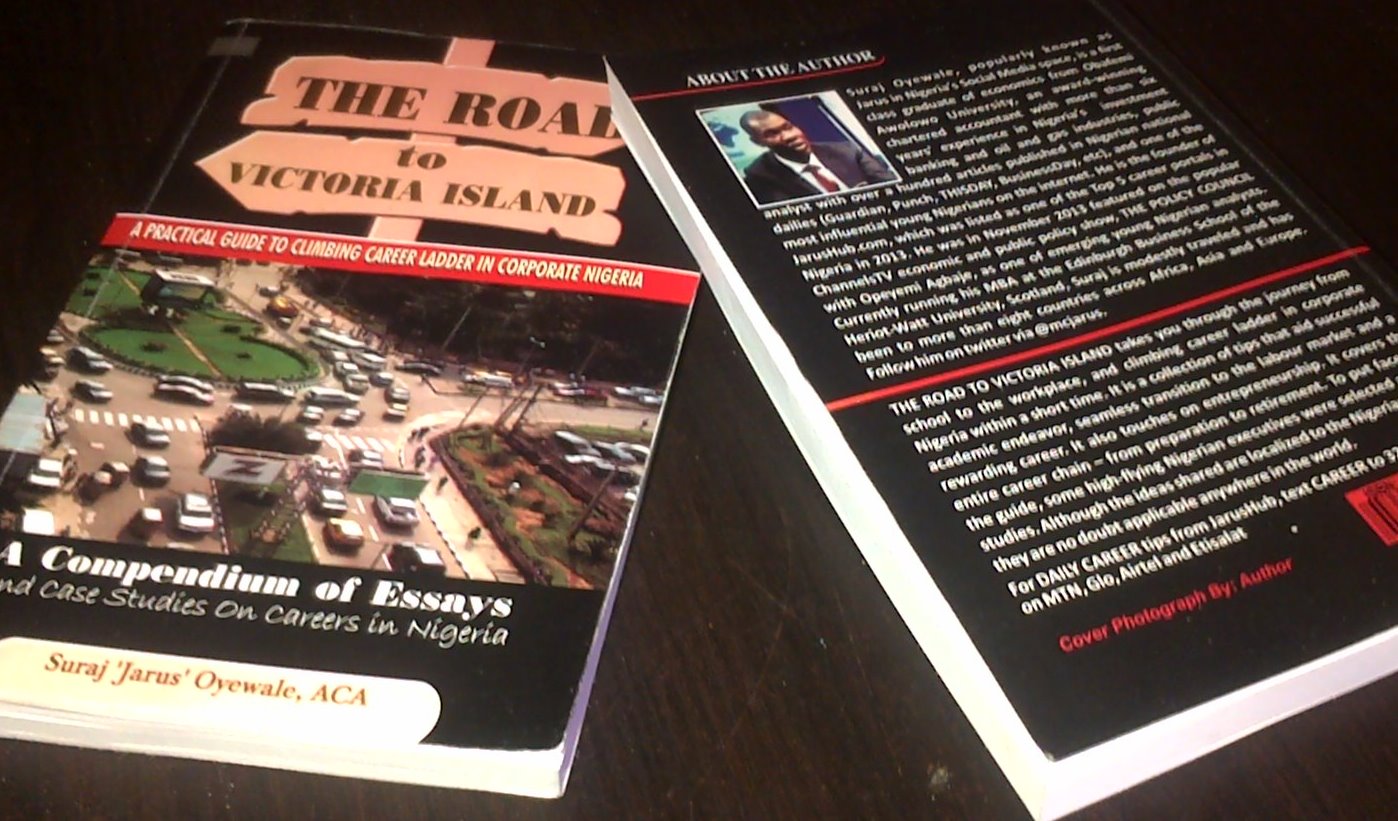
Uchechi Moses
Uchechi works in JarusHub
An advanced education forges one’s career or enterprise forward. Whether you desire to go to graduate school or business school – it is an important step in one’s life and career. In order to achieve this, you must write certain examinations (LSAT, IELTS, TOEFL, EJU, GRE, GMAT etc). The GRE and GMAT are amongst the most sought after, with the former being the most preferred for graduate studies and latter for business and management programs.
GMAT
The GMAT (Graduate Management Aptitude Test) is organised by the Graduate Admission Management Council (GMAC). It is a computer-based standardised examinations taken majorly by candidates aspiring to study management courses, including MBA, MSc. Accountancy, MSc. Finance amongst others. Founded in 1965 and accepted by more than 7, 000 business and management programs in circa 2. 300 graduate business schools globally, the GMAT assesses the possibility of graduate student success in business school. It is formulated to assist business schools and candidates understand their readiness for the rigorousness and intellectual activities you will experience in a graduate management program. These skills, the GMAC says, are important prerequisites for classes and activities you will face in a graduate program commencing from Day 1. It has four sections:
- Analytical Writing Assessment
- Integrated Reasoning
- Quantitative Reasoning
- Verbal Reasoning.
The AWA assesses one’s critical thinking skills and measures how you communicate ideas. Candidates are given an argument to analyse critically and write a critique of it in 30 minutes. Basically, it is all about how you analyse an argument. Only a topic is given and the duration is 30 minutes. One’s score in this section does not count into the final assessment. The IR section evaluates candidates’ ability to process information presented in multiple formats from different sources. According to the test makers, this is necessary in an increasingly data driven economy. This section has four question types: Table analysis, Graphics interpretation, Multi-source, reasoning and two-part analysis and is slated to be done in 30 minutes. The quant section of the examination assesses one’s knowledge of quantitative reasoning, problem solving skills, interpretation of data, and analysing a given information accurately. Knowledge of secondary school (high school) mathematics is important: Geometry, algebra and arithmetic etc. There are two types of questions here: Problem solving and data sufficiency. Where the former assesses your ability to reason quantitatively and solve problems, and the latter for understanding and analysing a problem and noting relevant information, while discarding irrelevant information. Calculators are not allowed in the quant section of the GMAT. Finally, the verbal section deals with your analyses of information and drawing a conclusion. It assesses your ability to read and understand written material, gauge arguments and sentence correction. Both the quant and verbal section are slated to be completed in 75 minutes respectively.
GRE
With its history dating back to 1969 and administered by the Educational Testing Service (ETS) for graduate programs into North American schools, and other parts of the world. The GRE, according to test makers, evaluates one’s verbal and quant reasoning, critical thinking and analytical writing skills. It is not related to a specific field of study, but skills developed over a long period of time are vital for all. Unlike the GMAT that has four sections, the GRE has six arranged in three. Namely:
- Analytical Writing Section (involving two separately timed issues and arguments). Duration is 30 minutes.
- Quantitative (contains 2 sections and 20 questions per section; evaluates problem solving skills based on basic concepts of arithmetic, algebra and data analysis. Unlike the GMAT, the GRE provides a calculator in its quant section). Time is 35 minutes per section.
- Verbal (Ditto as the quant, it has 2 sections and 20 questions per section; assesses ability to analyse written information harmonise information extracted from it. Also assesses the understanding of relationships of among parts of sentences and recognise among words and concepts). The duration for a section is 30 minutes.
- An experimental or research section: Here, takers are given a similar format of the quant and verbal questions. However, they are not told which of the quant or verbal is experimental. Although, it does not add or reduce your overall score, but you cannot detect which section is experimental is thereby ensuring you don’t skip a section – for your own good. Additionally, you could be lucky not to face an experimental section on the exam day. However, if it is research, you’ll be told it is research thereby giving you the opportunity to skip it. The experimental section is not included in the paper-based exam. ETS says it is to gauge candidates for future questions.
According to US News, the GRE is flexible due to the fact that it can be used for graduate studies as well as management programs (e.g. MBA). The GRE is currently accepted by over 1, 200 universities which offer business and management programs. As earlier stated, the GMAT is accepted by over 7, 000 business and management programs. So if you are going to business school, it is advisable to write the GMAT. Although, both examinations’ scores last for five years. However, if you’re opting for graduate studies, the GRE is perfect. If you might have a change of plans and aspirations, then write the GRE.
DIFFERENCES AND SIMILARITIES BETWEEN THE GRE AND GMAT
| GRE | GMAT |
| Allows calculator in the quant section | Calculators are not allowed. A working paper is provided to aid solving. |
| Approximately 581, 000 persons take the GRE annually. | Taken by circa 261, 000 persons annually. |
| Costs US$ 205 (fee reduction is available to US residents who demonstrate financial incapability) | US$ 250 |
| Administered at computer based centres globally. | Ditto as the GRE |
| Administered in paper-based formats in places where the computer based testing are unavailable. | No paper based administration. Strictly on the computer. |
| 3 hours 45 minutes | 3 hours 30 minutes
P.S. Effective from 16th April, the time will be reduced by 30 minutes. |
| You can skip a question in a section and return to it later. | You cannot skip a question. A question must be answered before you move to the next. |
| Combined score: 260 – 340 | Combined Score 200 – 800 |
| Verbal: 130 – 170 | Verbal: 0 – 60 |
| Quant: 130 – 170 | Quant: 0 – 60 |
| Analytical Writing Skill: 0 – 6 | Analytical Writing Skill: 0 -6 |
POINTS TO NOTE
Verbal: In the GMAT, you are tested on grammar and comprehension, while the GRE evaluates your ability with complex and uncommon words. Basically, if you are good in having a memory of complex vocabularies, the GRE is preferable.
Quant: The math in this section is secondary school mathematics. However, with the inclusion of the integrated reasoning which is quite challenging, the GMAT quant section gets tougher especially for those not very versed in mathematics. Most people who have taken both examinations say the GMAT is rigorous quantitatively, while the GRE is verbally more challenging.
The GRE can be used in place of the GMAT, but the GMAT cannot be used to replace the GRE. This depends on a program’s requirements and institution.
Finally, it is important to research about the school and program’s requirements before you make a decision on the exam to be written. The GMAT is a tried and tested examination for B-school, but the GRE provides another opportunity for students who might change their career plans from the business world.
For more discussions, join our forum, HOTPROFORUM
See also
Subscribe free to JarusHub for more tips on careers and education
[subscribe2]
Established in March 2013, JarusHub is a Nigerian information hub with focus on career and management. It is rated Nigeria's most authoritative destination for online career resources. It parades an array of Nigerian professionals who share their career experiences with a view to bridging career information gap and mentoring a generation to success. JarusHub has revolutionised career information and experience sharing in Africa. Whether you're a student, a recent graduate or an established professional, or even an executive, you will always find something to learn on JarusHub. All enquiries to jarushub@gmail.com or 0808 540 4500. Facebook: www.facebook.com/jarushub; Twitter: @jarushub or @mcjarus.
My First Year at Harvard Business School
September 8, 2021
Let us have your say by leaving a comment belowCancel reply
Recommended For You
-
CAREER GUIDE: The Road to Victoria Island
November 22, 2015 -
6 funny reasons some Lagosians give for skipping work
November 24, 2016 -
7 Things To Do Before Going for a Job Interview
December 7, 2015







